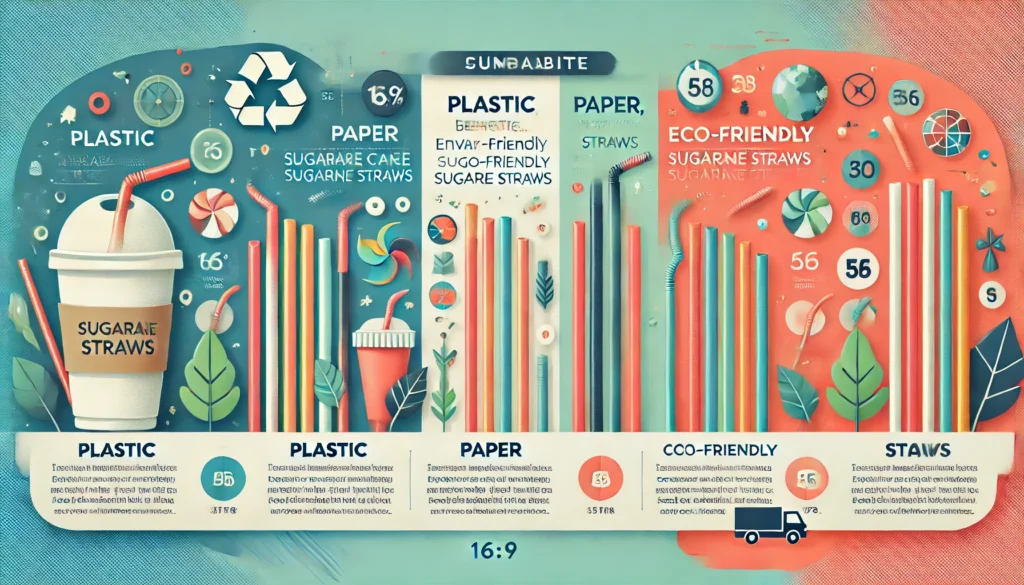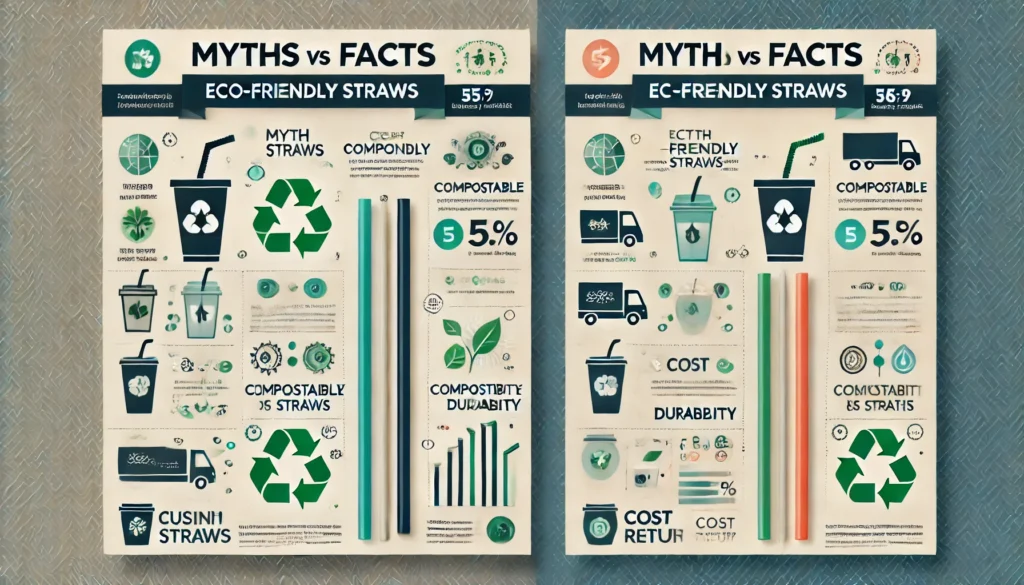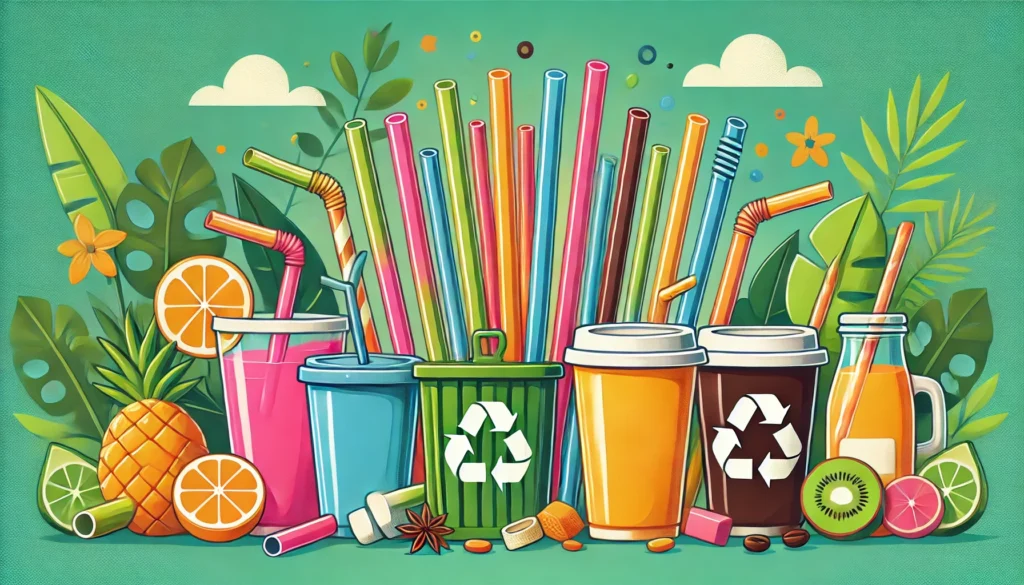
1. Introduction: Debunking Myths About Eco-Friendly Straws
Eco-friendly straws have become a popular alternative to plastic, but misconceptions often create resistance to adopting them. This article aims to dispel these myths, offering clarity and actionable insights to help businesses and consumers make sustainable choices.
2. Misconception 1: All Eco-Friendly Straws Are the Same
Fact: Eco-friendly straws come in various materials, each with unique properties.
- Sukkerrør sugerør: Compostable, sturdy, and suitable for diverse beverages. Explore customizable sugarcane straws.
- Kaffegrums sugerør: Heat-resistant and made from recycled materials, such as boba coffee grounds straws.

3. Misconception 2: Paper Straws Always Get Soggy
Fact: High-quality paper straws are designed for durability and extended use.
Options like eco-friendly cocktail coffee grounds straws perform exceptionally well.
4. Misconception 3: Biodegradable and Compostable Mean the Same Thing
Fact:
- Biodegradable: Breaks down naturally but may leave residues.
- Komposterbar: Decomposes into nutrient-rich soil under specific conditions.
For example, individually wrapped sugarcane straws are both compostable and biodegradable.

5. Misconception 4: Eco-Friendly Straws Are Too Expensive
Fact: While costs may initially seem higher, options like smoothie sugarcane straws offer long-term value by reducing environmental fees and attracting eco-conscious customers.
6. Misconception 5: Eco-Friendly Straws Don’t Work for Hot Beverages
Fact: Materials like sugarcane and coffee grounds are heat-resistant. Products such as individually wrapped smoothie coffee grounds straws are ideal for hot drinks.
7. Misconception 6: Eco-Friendly Straws Are Not Durable
Fact: Modern materials provide exceptional durability. Examples like regular sugarcane straws ensure long-lasting use, even for thick beverages like smoothies.
8. Misconception 7: Compostable Straws Only Break Down in Industrial Facilities
Fact: Home-compostable options, like eco-friendly sugarcane straws, decompose naturally in backyard compost bins.
9. Misconception 8: Switching to Eco-Friendly Straws Won’t Make a Difference
Fact: Switching to eco-friendly straws significantly reduces plastic waste and pollution. Businesses using customizable coffee grounds straws have reported increased customer loyalty.
10. Misconception 9: Eco-Friendly Straws Are Hard to Dispose Of
Fact: Proper disposal practices, such as composting, are straightforward. Options like individually wrapped cocktail sugarcane straws simplify waste management.

11. Misconception 10: Eco-Friendly Straws Don’t Support Custom Branding
Fact: Many eco-friendly straws, including customizable sugarcane straws, allow for logo printing and branding, making them an effective marketing tool.
Conclusion: Clear the Air About Eco-Friendly Straws
Eco-friendly straws are practical, durable, and beneficial alternatives to plastic. By debunking these misconceptions, businesses and consumers can make informed decisions that align with sustainability goals. Explore a wide range of eco-friendly products at NatureBioeco.
Ofte stillede spørgsmål
- What materials are commonly used for eco-friendly straws?
Materials include sugarcane, coffee grounds, bamboo, paper, and PLA. - Do sugarcane straws work for hot beverages?
Yes, they are heat-resistant and durable, making them ideal for hot drinks. - What’s the difference between biodegradable and compostable?
Biodegradable breaks down naturally, while compostable decomposes into nutrient-rich soil. - Are eco-friendly straws customizable?
Yes, options like customizable sugarcane straws allow for logos and branding. - Can eco-friendly straws decompose in home compost bins?
Many, like eco-friendly sugarcane straws, are home-compostable. - Are eco-friendly straws expensive?
Initial costs might be higher, but they offer long-term savings and brand value. - Do paper straws still get soggy?
High-quality paper straws have improved durability and performance. - Why should businesses switch to eco-friendly straws?
They reduce environmental impact, meet regulatory standards, and enhance brand reputation.
Citations
- Busting Myths About Paper Straws
- Types of Drinking Straws and Their Eco-Friendliness
- Biodegradable Straws: Not Paper
- Compostable vs. Reusable Straws
- Plastic vs. Paper: The Truth About Drinking Straws
- The Best Eco-Friendly Straw Materials
- Sustainable Compostable Straws
- Biodegradable Straws Overview







